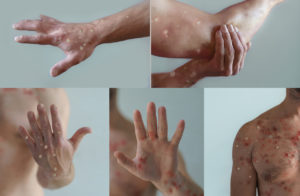HI #GYNEGIRLS AND #PREGGOS!
It’s Dr. DRAI- I’m back. Now you know I want to make sure that you ladies are taking good care of yourselves and this month, I’ll be focusing on sexual health. If you are sexually active, it is important that you take charge of your sexual health. From Sexually transmitted infections to pregnancy, we’re going to cover it all. How do you know if you are sexually healthy? This week, let’s chat about sexually transmitted infections (STIs).
There are a myriad of important decisions that we must make and knowledge that we must possess to be smart and safe as it relates to our sexual health. Sexually transmitted infections are on the rise and you can easily get them by being careless. Especially now that we are in the modern ages where sex is regarded more as a human necessity than as an expression of love. Approximately fifteen million cases of STIs are reported yearly in the United States alone.
Also called venereal disease, STIs are infections that can be acquired and transferred through sexual contact. Viruses are transmitted by having the blood and/or bodily fluid of an affected person come in contact to any break on the skin and into the bloodstream, like in a wound. If left untreated, STIs can have severe consequences, especially in women. It may cause infertility, and at times even death.
Common STI’s include:
- Human immunodeficiency virus (HIV) and Acquired immune deficiency syndrome (AIDS)
- Chlamydia
- Gonorrhea
- Genital herpes
- Syphilis
- HPV
- Hepatitis B
- Trichomonas
Of note, Pelvic Inflammatory Disease is a condition that women may experience that is caused by infections with Gonorrhea or Chlamydia. It can affect the upper genital tract and reproductive organs including ovaries, uterus and fallopian tubes. In addition to the typical symptoms of a Chlamydia or Gonorrhea infection, you may experience abdominal pain. PID must be treated with antibiotics (often in a hospital setting) to avoid complications like infertility.
You can’t always look at someone and tell they have an STI so it’s important that you ALWAYS protect yourself.
Since the first outbreak of sexually transmitted infections, scientists have been looking for different ways to make sex safer. Thanks to condoms, that problem has been resolved. The male condom works by forming a barrier to prevent sperm cells from reaching the egg cell, at the same time, it prevents skin-to-skin friction between the penis and the vaginal wall and its mucus lining. It thereby prevents direct contact to any vaginal secretion. This has proven most beneficial for people who engage in casual sex or who have multiple sexual partners.
By all means, be sure to protect yourself and see your doctor regularly for check-ups. Until next time #GYNEGirls and #Preggos…






